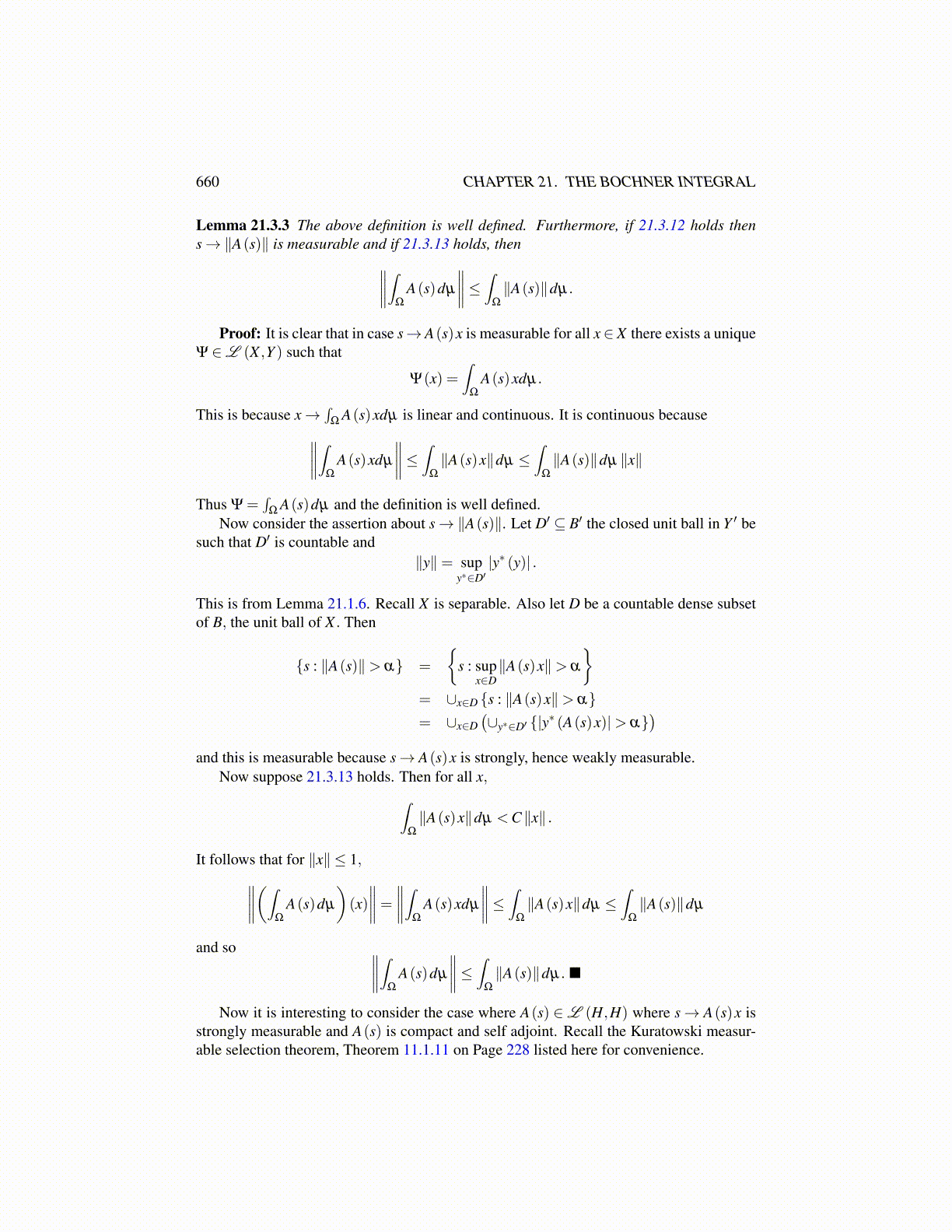
660 CHAPTER 21. THE BOCHNER INTEGRAL
Lemma 21.3.3 The above definition is well defined. Furthermore, if 21.3.12 holds thens→∥A(s)∥ is measurable and if 21.3.13 holds, then∥∥∥∥∫
Ω
A(s)dµ
∥∥∥∥≤ ∫Ω
∥A(s)∥dµ.
Proof: It is clear that in case s→ A(s)x is measurable for all x∈ X there exists a uniqueΨ ∈L (X ,Y ) such that
Ψ(x) =∫
Ω
A(s)xdµ.
This is because x→∫
ΩA(s)xdµ is linear and continuous. It is continuous because∥∥∥∥∫
Ω
A(s)xdµ
∥∥∥∥≤ ∫Ω
∥A(s)x∥dµ ≤∫
Ω
∥A(s)∥dµ ∥x∥
Thus Ψ =∫
ΩA(s)dµ and the definition is well defined.
Now consider the assertion about s→∥A(s)∥. Let D′ ⊆ B′ the closed unit ball in Y ′ besuch that D′ is countable and
∥y∥= supy∗∈D′
|y∗ (y)| .
This is from Lemma 21.1.6. Recall X is separable. Also let D be a countable dense subsetof B, the unit ball of X . Then
{s : ∥A(s)∥> α} =
{s : sup
x∈D∥A(s)x∥> α
}= ∪x∈D {s : ∥A(s)x∥> α}= ∪x∈D
(∪y∗∈D′ {|y∗ (A(s)x)|> α}
)and this is measurable because s→ A(s)x is strongly, hence weakly measurable.
Now suppose 21.3.13 holds. Then for all x,∫Ω
∥A(s)x∥dµ <C∥x∥ .
It follows that for ∥x∥ ≤ 1,∥∥∥∥(∫Ω
A(s)dµ
)(x)∥∥∥∥= ∥∥∥∥∫
Ω
A(s)xdµ
∥∥∥∥≤ ∫Ω
∥A(s)x∥dµ ≤∫
Ω
∥A(s)∥dµ
and so ∥∥∥∥∫Ω
A(s)dµ
∥∥∥∥≤ ∫Ω
∥A(s)∥dµ.
Now it is interesting to consider the case where A(s) ∈L (H,H) where s→ A(s)x isstrongly measurable and A(s) is compact and self adjoint. Recall the Kuratowski measur-able selection theorem, Theorem 11.1.11 on Page 228 listed here for convenience.